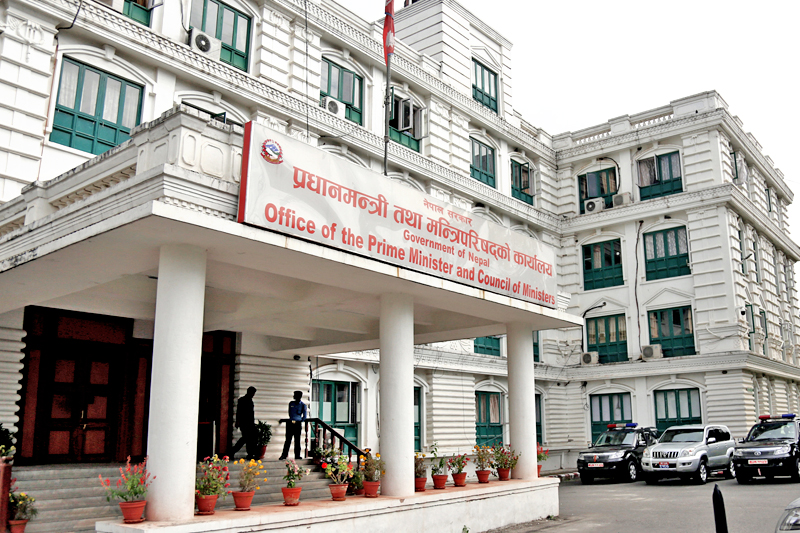PMO to monitor monthly progress of ministries
Kathmandu, October 12
The Office of the Prime Minister and Council of Ministers has implemented internet-based ‘Online Monitoring System’ to supervise progress made by ministries and other agencies in their work plan submitted to the OPMCM for implementation of the government’s policies and programmes and annual budget.
The move follows criticism that the government and its agencies have failed to effectively deliver services.
As per the new initiative, ministries have to update monthly progress made in their work plan on the software by the seventh day of every Nepali month. The software has also been implemented in each ministry and their subordinate agencies will update their progress on the software, according to OPMCM Spokesperson Binod Bahadur Kunwar.
The OPMCM will then evaluate the report furnished by the ministries and categorise them under three categories — the ministries making more than 80 per cent progress, those making 50-80 per cent progress and the ones making less than 50 per cent progress.
“This way, the government can monitor ministries’ performance, while the ministries can evaluate performance of their subordinate bodies efficiently, cost-effectively and without field visits or paper work,” said Kunwar. “There will, however, be random field visits to cross-check whether the agencies are furnishing correct details.” The government also plans to announce best-performing ministries and agencies every month on the basis of progress made in their work plan.
When asked whether the OPMCM would initiate any action against low performing ministries or agencies, Kunwar said they would be asked why they could not achieve the desired result.
The OPMCM has already directed ministries to update their progress on the software that was first implemented as a pilot testing on September 17. Kunwar said some of the ministries had already started updating their progress.
Former chief secretary Bimal Koirala said since the progress made so far suggested that government agencies had failed to deliver as expected, the software might not achieve the desired results until the prime minister himself became effective. “For the effectiveness of the system and to realise desired results, the PM should be able to take action against low performing ministries or agencies,” he said.






